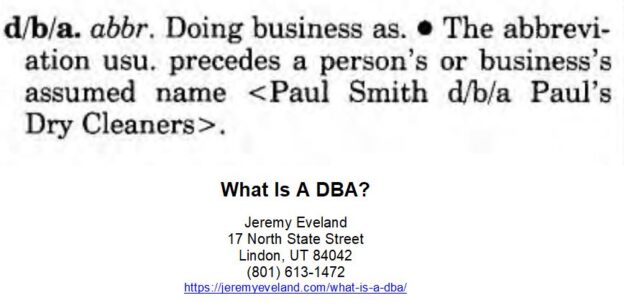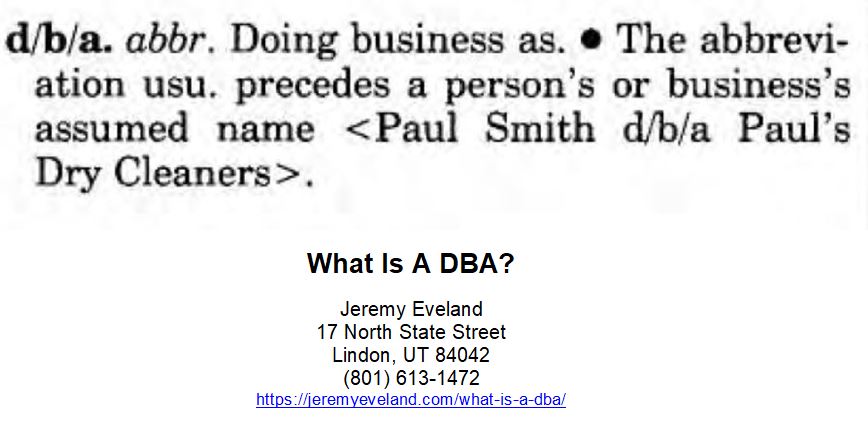Business Consultant
-
Strategic Management
- Introduction
- Measuring the Return on Investment on a Business Consultant
- The Advantages of Hiring a Business Consultant
- The Role of Teamwork in Organization Development for Business Consultants
- Why Your Business Consultant Should Have Built a Multi-Million Dollar Business
- The Benefits of Hiring a Business Consultant with a Masters in Business Administration
- Why You Should Hire Jeremy Eveland As Your Business Consultant
- Q&A
“Unlock Your Business Potential with a Professional Business Consultant”
Introduction
A business consultant is a professional who provides expert advice and guidance to businesses in order to help them improve their performance and reach their goals. Business consultants are highly knowledgeable in a variety of areas, including finance, marketing, operations, and human resources. They are able to analyze a business’s current situation and provide solutions to help the business reach its objectives. Business consultants can also provide guidance on how to best utilize resources, develop strategies, and implement changes. With their expertise, business consultants can help businesses become more efficient and profitable.
Measuring the Return on Investment on a Business Consultant
Measuring the return on investment (ROI) of a business consultant is an important step in determining the value of the consultant’s services. The ROI of a consultant can be measured in terms of the financial benefits they bring to the business, as well as the intangible benefits they provide.
Financial Benefits
The most obvious way to measure the ROI of a business consultant is to look at the financial benefits they bring to the business. This includes any cost savings or increased revenue that can be attributed to the consultant’s work. For example, if the consultant helps the business to reduce costs or increase efficiency, then the savings can be calculated and used to measure the ROI. Similarly, if the consultant helps the business to increase sales or market share, then the increased revenue can be used to measure the ROI.
Intangible Benefits
In addition to the financial benefits, there are also intangible benefits that can be attributed to the work of a business consultant. These include improved customer service, increased employee morale, and better decision-making. These benefits are more difficult to measure, but can still be taken into account when calculating the ROI of a consultant.
Calculating the ROI
Once the financial and intangible benefits have been identified, the next step is to calculate the ROI. This can be done by dividing the total benefits (financial and intangible) by the total cost of the consultant’s services. This will give you a percentage that can be used to measure the ROI of the consultant.
Conclusion
Measuring the ROI of a business consultant is an important step in determining the value of their services. By looking at both the financial and intangible benefits they bring to the business, it is possible to calculate the ROI and get an accurate measure of the consultant’s value.
The Advantages of Hiring a Business Consultant
Hiring a business consultant can be a great way to improve the performance of your business. A business consultant can provide valuable insight and expertise to help you identify and address areas of improvement. Here are some of the advantages of hiring a business consultant:
1. Expertise: Business consultants have a wealth of knowledge and experience in their field. They can provide valuable advice and guidance on how to improve your business operations and processes.
2. Objectivity: Business consultants are not emotionally invested in your business, so they can provide an objective perspective on your operations. This can be invaluable in helping you identify areas of improvement and develop strategies to address them.
3. Cost-effectiveness: Hiring a business consultant can be more cost-effective than hiring a full-time employee. Consultants typically charge an hourly rate, so you only pay for the services you need.
4. Efficiency: Business consultants can help you streamline your operations and processes, which can lead to increased efficiency and productivity.
5. Networking: Business consultants often have a wide network of contacts in their field. This can be beneficial in helping you find new customers, suppliers, and partners.
Overall, hiring a business consultant can be a great way to improve the performance of your business. With their expertise, objectivity, cost-effectiveness, efficiency, and networking capabilities, business consultants can be a valuable asset to any organization.
The Role of Teamwork in Organization Development for Business Consultants
Teamwork is an essential component of successful organization development for business consultants. It is a key factor in the success of any organization, as it allows for the sharing of ideas, resources, and responsibilities. Teamwork also helps to create a sense of unity and collaboration among team members, which can lead to improved productivity and efficiency.
Business consultants play a critical role in organization development, as they are responsible for helping organizations identify and implement strategies that will improve their performance. By working together, business consultants can leverage their collective knowledge and experience to develop effective solutions that will benefit the organization. Teamwork also allows business consultants to share their expertise and insights, which can help to identify potential areas of improvement and develop strategies to address them.
Teamwork is also important for business consultants because it allows them to build relationships with their clients. By working together, business consultants can gain a better understanding of their clients’ needs and objectives, which can help them to develop more effective solutions. Additionally, working together can help to foster trust and collaboration between the business consultant and the client, which can lead to better results.
Finally, teamwork is important for business consultants because it allows them to develop their own skills and knowledge. By working together, business consultants can learn from each other and develop their own unique approaches to organization development. This can help them to become more effective consultants and better serve their clients.
In conclusion, teamwork is an essential component of successful organization development for business consultants. It allows them to share ideas, resources, and responsibilities, build relationships with their clients, and develop their own skills and knowledge. By leveraging the power of teamwork, business consultants can help organizations to achieve their goals and improve their performance.
Why Your Business Consultant Should Have Built a Multi-Million Dollar Business
As a business consultant, it is important to have a deep understanding of the challenges and opportunities that businesses face. Having built a multi-million dollar business provides a unique perspective and insight into the complexities of running a successful business.
A business consultant with a multi-million dollar business under their belt has the experience and knowledge to provide valuable advice to their clients. They have first-hand experience in the areas of finance, marketing, operations, and customer service. They understand the importance of making sound decisions and the consequences of making poor ones. They can provide guidance on how to manage cash flow, develop a marketing strategy, and create a customer service plan.
A business consultant with a multi-million dollar business also has the ability to think strategically. They can help their clients identify opportunities and develop strategies to capitalize on them. They can provide guidance on how to develop a competitive advantage and how to create a sustainable business model.
Having a multi-million dollar business also provides a business consultant with the credibility to be taken seriously. Clients are more likely to trust the advice of someone who has achieved success in business. They can also provide a valuable network of contacts and resources that can help their clients succeed.
In short, a business consultant with a multi-million dollar business has the experience, knowledge, and credibility to provide valuable advice to their clients. They can help their clients identify opportunities, develop strategies, and create a sustainable business model. They can also provide a valuable network of contacts and resources that can help their clients succeed.
The Benefits of Hiring a Business Consultant with a Masters in Business Administration
Having a business consultant with a Masters in Business Administration (MBA) can be a great asset to any organization. An MBA is a postgraduate degree that focuses on the development of business and management skills. An MBA graduate has the knowledge and experience to help businesses identify and address their challenges, develop strategies, and improve their operations. Here are some of the benefits of hiring a business consultant with an MBA.
1. Strategic Thinking: An MBA graduate has the skills to think strategically and develop innovative solutions to complex business problems. They can help businesses identify their strengths and weaknesses, develop strategies to capitalize on their strengths and address their weaknesses, and create plans to achieve their goals.
2. Financial Expertise: An MBA graduate has the knowledge and experience to help businesses manage their finances. They can help businesses develop budgets, analyze financial statements, and identify areas of improvement. They can also help businesses develop strategies to reduce costs and increase profits.
3. Leadership Skills: An MBA graduate has the leadership skills to help businesses develop and implement effective strategies. They can help businesses create a vision, set goals, and develop plans to achieve those goals. They can also help businesses develop and implement effective management systems.
4. Networking: An MBA graduate has the networking skills to help businesses build relationships with potential customers, partners, and investors. They can help businesses identify potential opportunities and develop strategies to capitalize on them.
Hiring a business consultant with an MBA can be a great asset to any organization. They have the knowledge and experience to help businesses identify and address their challenges, develop strategies, and improve their operations. They can also help businesses manage their finances, develop and implement effective strategies, and build relationships with potential customers, partners, and investors.
Why You Should Hire Jeremy Eveland As Your Business Consultant
Jeremy Eveland is an experienced business consultant who has a proven track record of helping businesses reach their goals. He has a wealth of knowledge and experience in the areas of business strategy, operations, and finance. He has worked with a variety of businesses, from small startups to large corporations, and has a deep understanding of the challenges and opportunities that businesses face.
Jeremy has a unique ability to quickly identify and analyze problems, develop solutions, and implement them. He is an excellent communicator and is able to effectively communicate with all stakeholders, from executives to employees. He is also highly organized and can manage multiple projects at once. He regularly gives management and leadership trainings for his clients.
Jeremy has a strong background in financial analysis, along with the law, and can provide valuable insights into the financial health of a business. He is also well-versed in the latest technology and can help businesses leverage technology to improve their operations.
Jeremy is a highly motivated individual who is passionate about helping businesses succeed. He is committed to providing the best possible service to his clients and is always willing to go the extra mile to ensure their success.
If you are looking for a business consultant who can help you reach your goals, Jeremy Eveland is a good choice. He has the experience, knowledge, and skills to help you achieve success.
Q&A
1. What is a Business Consultant?
A business consultant is a professional who provides expert advice and services to businesses to help them improve their performance and operations.
2. What types of services do Business Consultants provide?
Business consultants provide a wide range of services, including strategic planning, market research, financial analysis, organizational development, process improvement, and project management.
3. What qualifications do Business Consultants need?
Business consultants typically need a bachelor’s degree in business, finance, or a related field. They may also need to have experience in the industry they are consulting in.
4. How much do Business Consultants charge?
Business consultants typically charge an hourly rate or a flat fee for their services. The cost of a consultant’s services can vary depending on the type of services provided and the complexity of the project.
5. What are the benefits of hiring a Business Consultant?
Hiring a business consultant can help businesses save time and money by providing expert advice and services. A consultant can also help businesses identify areas of improvement and develop strategies to increase efficiency and profitability.
6. How do I find a Business Consultant?
You can find a business consultant by searching online or asking for referrals from other businesses. You can also contact professional organizations such as the Association of Management Consulting Firms or the Institute of Management Consultants to find a qualified consultant.
Business Consultant Consultation
When you need legal help from a Business Consultant call Jeremy D. Eveland, MBA, JD (801) 613-1472 for a consultation.
Jeremy Eveland
17 North State Street
Lindon UT 84042
(801) 613-1472
Related Posts
Estate Planning Lawyer Salt Lake City Utah
Business Succession Lawyer Bountiful Utah

























